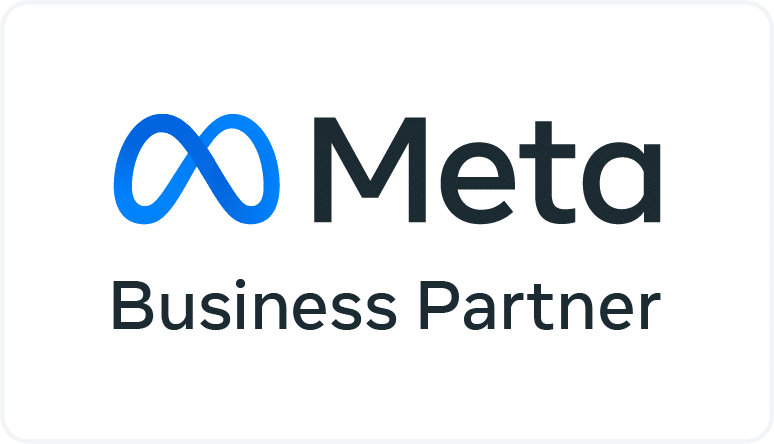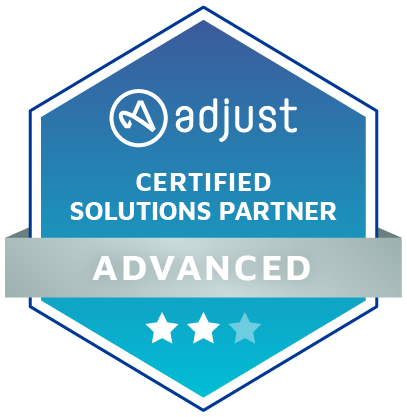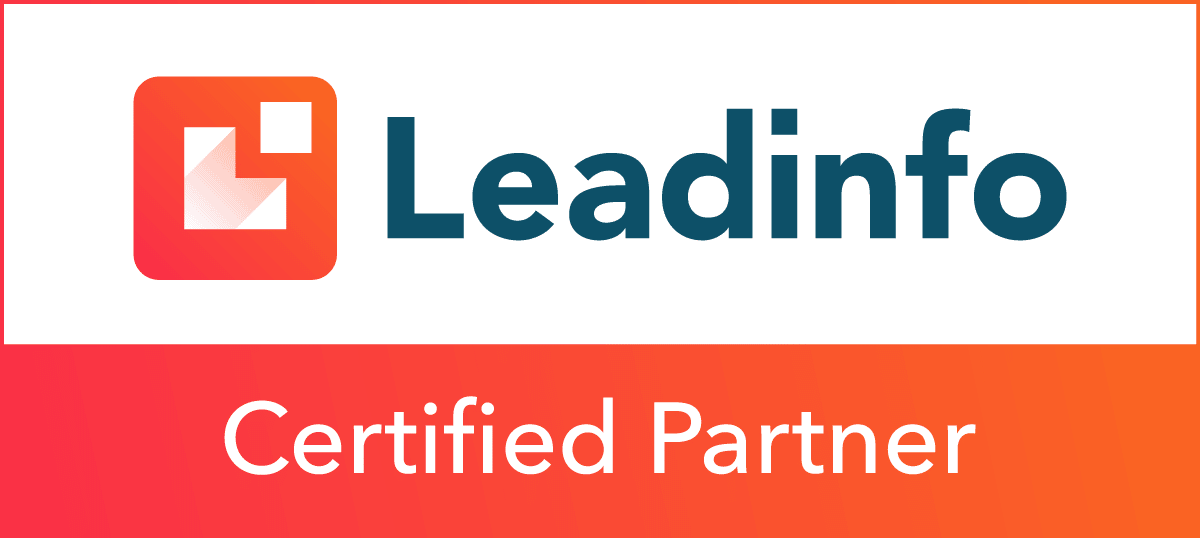It’s clear to see that growth marketing is all about business growth, flexibly adapting to the ever-changing conditions of the digital age, and organizing everything skillfully. Moreover, the people who can do precisely that are called growth managers or growth consultants. Their greatest strength is in keeping an eye on everything simultaneously, so to speak, as well as optimizing the customer’s journey and experience beyond the boundaries of traditional marketing.
Data-driven and always focused on all key performance indicators, they reveal the opportunities for achieving given target KPIs, developing agile strategies, and setting realistic targets. Furthermore, this applies both to startups and long-established traditional companies.
Above all, every day that you work in an agency like advalyze in particular, is very varied — today I’m doing something with a robot startup, tomorrow with a medium-sized company that sells kitchens, and so on. This means a high level of flexibility is needed
From the first touch points, via product and service experiences to follow-up purchases and recommendations – growth marketing is about creating a holistic consumer experience. Ultimately, initial consumers should become sustainable customers, and for this to succeed, individual company departments must mesh together like well-oiled gears. Then I’m sure every one of us is aware of the clichéd status among departmental relationships: Marketing and sales – it’s complicated… Instead, the motto is “better all together than just sitting next to each other”.
In an interview with our growth managers Aaron Tobias and Jan Steg, we have worked out exactly how this works, which hard and soft skills growth managers need, and how much they get paid each year.
What is the job of a Growth Manager at advalyze?
You will be managing projects and developing new solutions as the agency’s main point of contact and the client’s contact person. This puts you in a critical position between the internal team and the customer’s staff. As a growth manager, your primary focus will be on keeping all the processes, goals, and deadlines (aka the “bigger picture”) all the time.
Data will be the most critical interface between you, your team, and your customers. Because these reflect the digital business at a specific point X in time. These can be understood, evaluated, and processed thanks to your expertise. After all, they clearly provide information on where you stand right now, about what works and what is currently not doing so well.
The following will often be on your agenda:
- Search-volume analyses and calculations when campaigns are launched,
- Evaluations of advertising media tests concerning click rates across all channels,
- The monitoring of user behavior in cohort analysis data,
- Implementing recommendations on achieving target metrics using cited data.
At the operational level, of course, you won’t need to take care of everything on your own. Instead, you will be working closely with colleagues from the areas of Performance Marketing, Creation, and MarTech; your work will focus on developing a strategy with and for your customers and acting as a sparring partner to assist with problems and challenges. At the same time, you’ll also coordinate resources internally, develop the roadmap, and organize the work of all the people who will do it. If, let’s say, problems arise in the team or project, it will be your task to provide help and information as the first contact person.
Success through an entrepreneurial perspective
Growth Managers are also characterized by their entrepreneurial perspective. This means they can think everything through to the end from A to Z, also referred to as “full thinking”. In other words, you’ll be looking at the bigger picture rather than just being preoccupied with one step of the funnel (in other words, your focus will be on more than just one marketing channel, such as Google Ads). This is because the following very often applies: The leads that appear the cheapest will usually later turn out to be the most expensive ones. Even if they convert superficially, this doesn’t mean the leads will function well and sustainably in the long term. That’s why the entrepreneurial perspective is so important. Because this would allow you to look at the entire customer journey and even include topics like brand marketing in your strategic planning.
“What the client wants is not always what they really need.”
Here is an extreme example just to make this clear: A car dealer places an inexpensive website ad for “free beer”. It’s more than likely that the site will attract many new visitors, but whether they will actually get around to buying a car is a completely different question. A strategy addressing the target group at exactly the right time and the right place with the right content would work better, resulting in constant conversion. The goal is to look at the entire funnel – i.e., the entire sales process – and to optimally align the available resources and goals. As a growth manager, you will always work holistically and bring an entrepreneurial perspective to your customers and their problems.
How do I become a growth manager?
- A business degree is always an advantage, but it is even more important to have marketing, sales or entrepreneurial experience. For example, you will need to know how to create and manage performance campaigns in Google Ads and Meta, and understand how to maintain contact and deal with clients, along with having knowledge of how to manage interdisciplinary projects.
- An interest in and an understanding of how to evaluate data is vital. Then, after all, you will have to be able to interpret data from different channels in various ways and apply this in the big picture.
- It is also essential that you are open to new business models, industries, problems and people and that you enjoy finding new solutions.
- In general, you need to have a great interest in and understanding of various business models and how different departments and measures work in partnership.
Versatile work and flexibility
It is also important to enjoy challenges because you will encounter problems just about every day. Anyone who displays the wrong attitude and thinks, “Oh no, not another problem,” will find it difficult to gain a foothold in this profession. Instead, you should bring along solution-oriented thinking and the will to constantly improve things.
Always being in contact with people
The lively discourse with customers, making arrangements, and involvement in brainstorming sessions within a team – working with people will shape almost all of your working day, which is why you should have a particular affinity for lively exchanges of ideas and fruitful cooperation. In doing so, you not only need to be able to get involved with different personalities, you will also need to put forward your opinion and point of view convincingly.
Growth manager: These are the skills you will need to have
- Dealing with people: Growth managers must be communicative and outgoing, interact well with others, and always treat them as equals.
- Constructive communication: If something is not going well, communication with those responsible needs to be conducted factually and constructively. You should, therefore always be able to separate the problem from the person (this is actually the most important point for us).
- Analytical thinking: It’s a digital job, focusing on data and numbers. You need to understand such information and be able to work with it.
- Solution-oriented thinking: Bring a desire for challenges with you and do not give up under any circumstances. See it as an opportunity to learn new things and to surpass yourself.
- Project management skills: You should deal extensively with project management, i.e., with the questions of “how do I coordinate what” and “how do I keep track of things”.
- Expertise and experience: Your skill set includes the ability to do something different and knowing exactly what will lead to success here and now. And you will receive and strengthen this through studies, training, webinars, and practical experience.
Work with us!
Jan, what did you learn in your first year as a Growth Manager at advalyze?
Self-confidence in how I talk to people, how I appear confident, and, above all, how I present myself. Much of my work consists in presenting my ideas understandably and defending them if needs be. Today, I know exactly how discussions are conducted constructively and at eye level and how I always remain open-minded, both in-house and with customers in terms of content. These are a few of the important things I have learned.
Aaron, what really matters when it comes down to working with customers?
A good project structure is the be-all and end-all in driving customers forward in a targeted manner, especially when a lot of testing is carried out across departmental boundaries. Here, three separate departments, such as marketing, sales, and IT have to work together quickly and effectively. This is where an overview may get lost. Many customers simply do not know the connections involved and the most important methods of fine-tuning, so they are not aware of their operational effect.
A solid structure, simple explanations, and an overview give customers clarity and prevent them from feeling “lost.” If I can convey the impression that I never lose sight of the big picture, then I’ll generate precisely the confidence that’s needed to advance solutions. Because that’s what matters in my job.
How does a growth manager plan a new project?
First of all, a client needs to approach us as an agency so that we can decide where the real problems lie together, which is why we first analyze the problem. We look at whether the services we offer can provide support, or whether something completely different is needed or sought after. What our customers want is not always what they really need. At advalyze, our approach is to give our customers precisely the service that gets their business model achieving sustainable success.
1. Workshop and audit with the customer
We start with a workshop and or an audit, depending on your concerns. In the process, we look at the starting situation and the individual details, so that we can delve even deeper into the customer’s company. Because often enough, the original initial problem is not the only one. This procedure is then typically followed by a tracking audit that is used to collect and map data, and with which the data from online campaigns can also be correctly interpreted, optimized, and expanded.
2. Conceiving a strategy and solving problems
Based on this status quo, we then develop the strategy together. In doing so, we record exactly what needs to be done and how it is to be implemented. Of course, our customers are free to take care of implementation on their own, in cooperation with another company – or with us and using our expertise. If the latter is the case, then we can also start straightaway. Goals are defined, and project teams are established and agreed upon with their responsibilities, tasks, dependencies, and timings. We work in project stages and subprojects, we record milestones where necessary, and always measure our work against the performance indicators that need to be optimized.
3. The first goal: Picking the low-hanging fruit
Initially, the focus is on individual optimizations that have excellent impact potentials, though not doing everything at once. Especially when it comes to large advertising accounts, it is important to proceed in iterative steps. All the hypotheses previously established are tested one after another so that we can assign effects and actions in a targeted way.
The customer’s expectations are repeatedly questioned during the cooperation. This is the only way we can ensure that the available capacities are being used correctly, and that medium to long-term optimizations are also implemented operationally.
4. Tracking and measuring if the goals are being achieved
The measures are always geared toward the goals and how to achieve them. For example, if the focus is on generating leads, one possible goal might be to generate a thousand leads at a specific cost per lead (CPL). However, the aim could also be to set up marketing automation or achieve a fixed quota of sales-qualified leads.
What’s the salary of a growth manager?
And now, to get to the nitty-gritty, how much ends up in the pay packet? Of course, it depends entirely on the position because this will always determine the salary. At advalyze, the following four positions need to be filled: junior growth manager, growth manager, growth consultant, and growth expert. Industry-wide, the gross annual salary in Germany ranges from €36,000 to €80,000, depending on your experience, seniority, and the city or state where you work.
What do you enjoy most about working as a growth manager?
It is stimulating to get to know different types of companies, from startups to medium-sized companies to corporations, as well as a wide variety of industries. This is very interesting given the business models behind it. At the same time, we get to know an incredible number of people, which means that the network is also constantly growing. Otherwise, it is really enjoyable to improve your soft skills, such as “how do I present myself” or “how can I get others excited by my ideas” so that they receive support.
It’s a demanding job yet also an exhilarating one. And it is always exciting to see how the agreements you’ve come to with the customer are implemented. That moment when everything works and the customers are completely happy with the results is always one of our work’s most beautiful moments.
We would like to thank Aaron and Jan for this comprehensive insight and the successful interview!
If you have any other questions about growth managers, feel free to contact us; we’re looking forward to hearing from you. Or you can dare take a step toward a career change and apply to us. You can find all the current job postings on our career page.
Apply today







